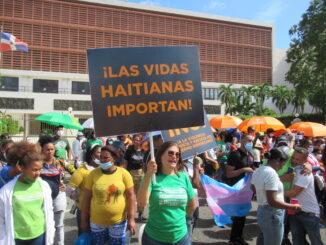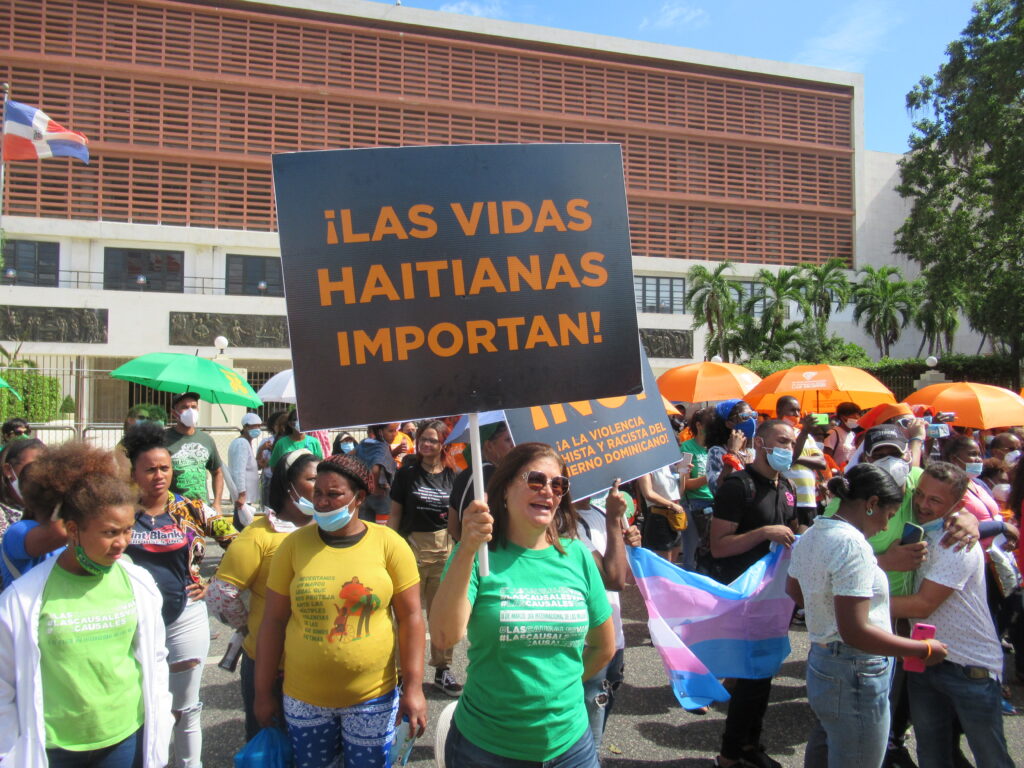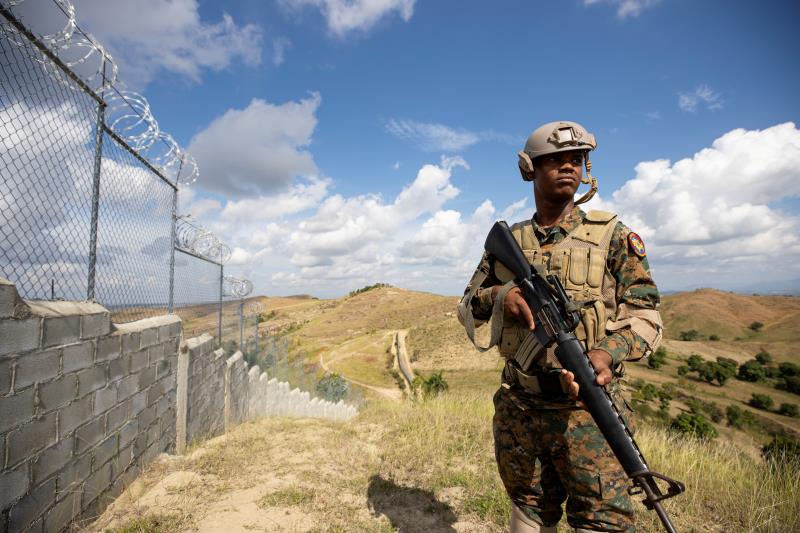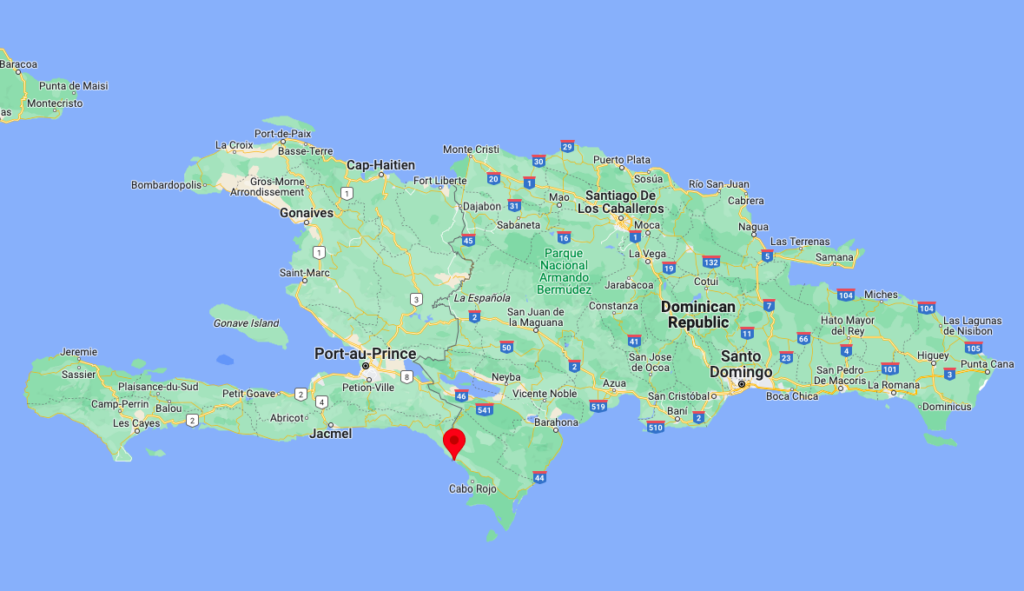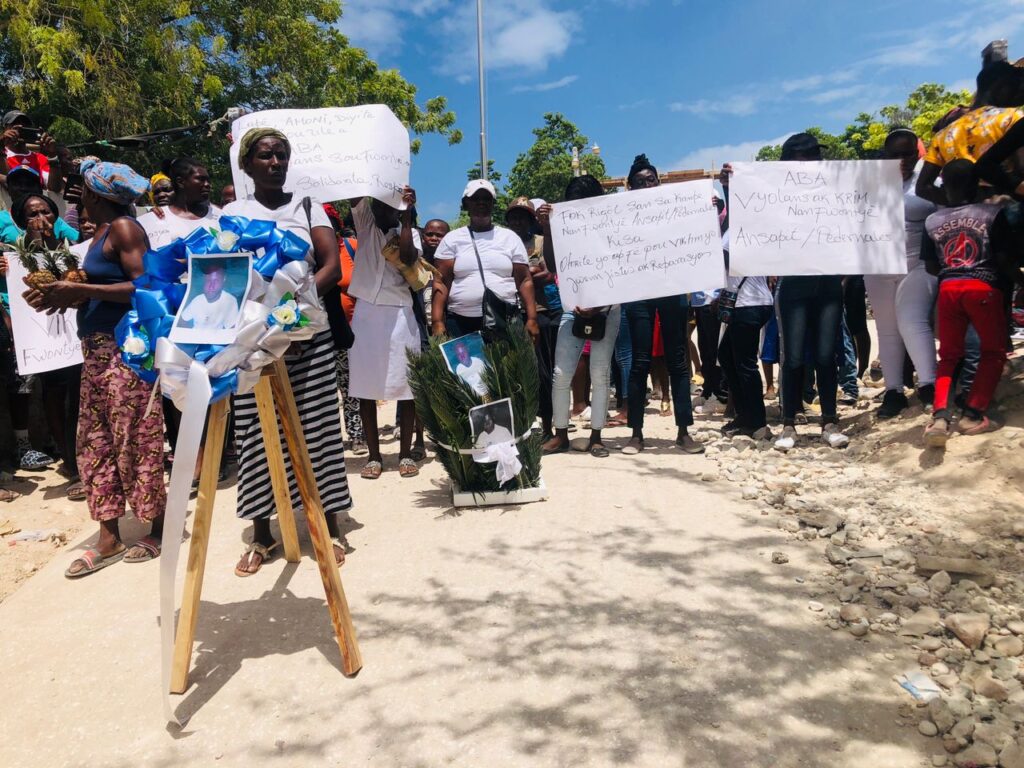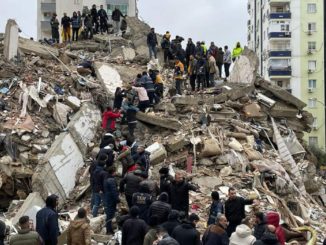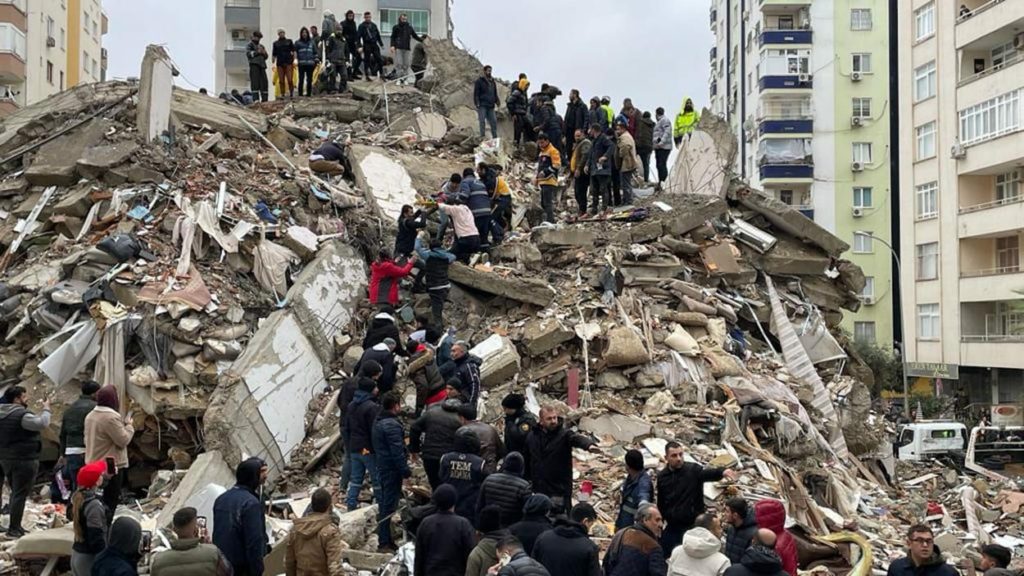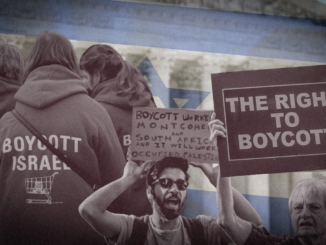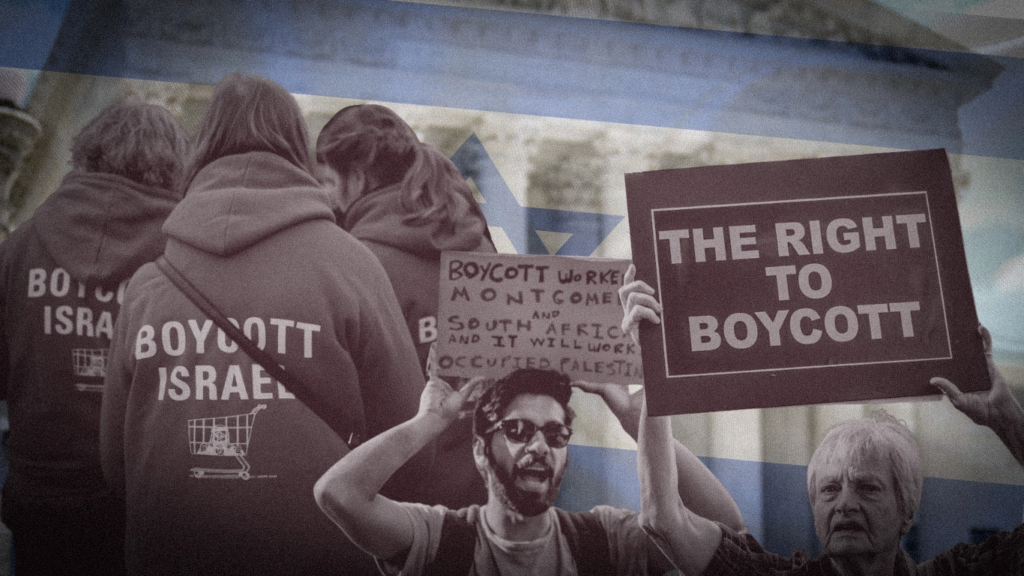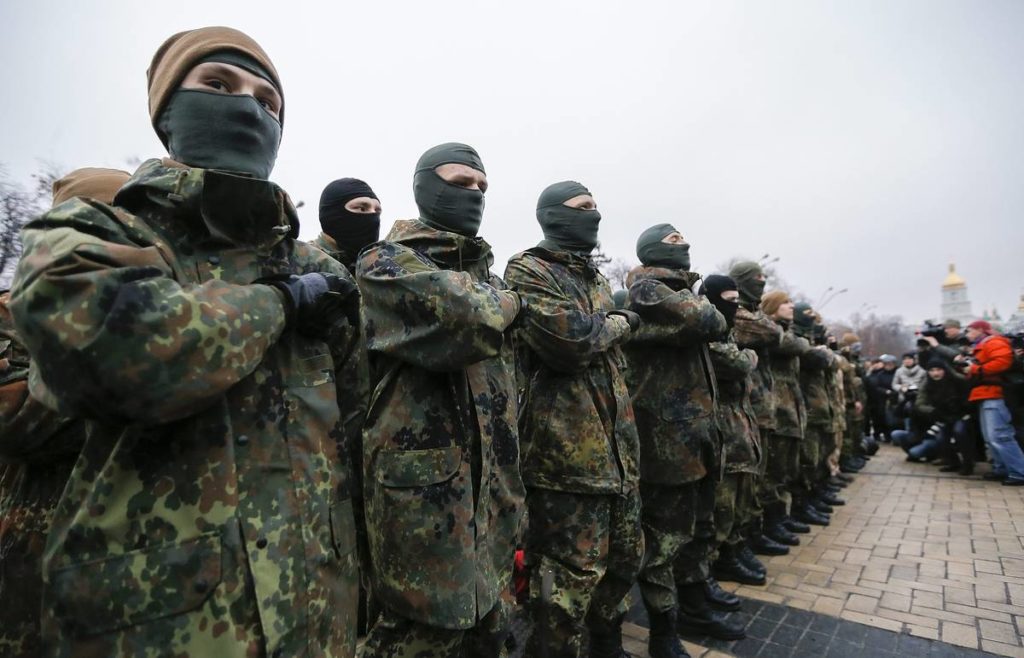
Editor’s Note: This is based on a presentation the author gave during a February 6 webinar, “U.S./NATO Aggression at the Russian Border. No War with Russia.” The event was a conversation between Russian, Ukrainian and U.S. activists the United National Antiwar Coalition had organized.
We have serious concerns that the accelerated drive to militarization and war by the United States and its allies dramatically unfolding with the crisis in Ukraine might very easily escalate to the point that it could threaten global humanity.
In their mad drive to advance their geostrategic interests to the detriment of everyone else—the Democratic Party version of “America First”—the Biden administration willfully violates all of the core principles of international relations and law. The respect for national sovereignty, the prohibition against threatening other members of the United Nations with military actions, non-intervention and adherence to international law are not recognized by the United States, which sees itself as an exception to the rule of law.
The manufactured crisis in Ukraine is just the latest episode of the reckless and delusional drama that the United States is involved in to attempt to maintain hegemony in conditions that have fundamentally changed. That is why contextualizing Ukraine as another example of why a global anti-war and anti-imperialist movement is so vitally important.
As long as the commitment to “Full Spectrum Dominance” remains bipartisan policy, today, it’s Ukraine. But tomorrow, it is certain to be another nation, another issue that will require a response from the peoples of the world.
As stated in the final declaration of the Fourth Canada-United States-Mexico Trilateral Peace Conference in Moca, Dominican Republic, held in September 2018, there must be a firm and principled commitment on the part of peace and anti-imperialist organizations that “peace must be based on the principles of non-intervention and full respect for the sovereignty, territorial integrity, self-determination and independence of all states, as stipulated in the United Nations Charter and covenants of international law enacted since the end of the second imperialist war known as World War II.”
Yet, the web of global U.S. command structures—with over eight hundred military bases—NATO as the largest military alliance in the world; illegal, draconian sanctions; and political subversion through coups makes national sovereignty impossible. The illegal and unilateral actions by the United States and its allies represents a constant threat to international peace and perpetuates a lawless, international Hobbesian state of nature.
So, while it is quite clear how we got to this moment with the situation in Ukraine, the challenge for the anti-war, pro-peace movement—and more specifically for the anti-imperialist organizations and movements in the United States and Europe—is to ground our understanding of the driving force and objective interests responsible for where the international community is at this moment.
For the Black Alliance for Peace (BAP) the common enemy is the U.S./EU/NATO Axis of Domination. We argue that we must center our analysis within the context of the global class struggle—a struggle sharpened by the ongoing and irreconcilable contradictions of the global colonial-capitalist system.
That is important because if we do not identify the real, concrete material forces, we can find ourselves struggling against shadows, instead of against the corporeal reality of an alliance of states dedicated to advancing their interests to the detriment of everyone else.
It is imperialism, led by the United States, that is the culprit. Its parasitic imperialist domination would be impossible without its core instrument of enforcement and control: State violence. That is why we are discussing Ukraine today.
Imperialism: That is framework. Today, it is Ukraine. Tomorrow, it might be China. Why? Because with the seemingly sudden and spontaneous crisis that emerged with Ukraine, the steady, violent, oppressive and repressive relations of power between the United States and Western capital and the rest of humanity continues. Objective reality bears this out. While we are focused on Ukraine as the most immediate danger, the people of Afghanistan are starving, bombs are still dropping in Yemen, coups are unfolding in Africa, the United States is still pivoting to Asia, and the peoples and nations of Latin America and the Caribbean are still suffocating from the predatory weight of the U.S. hegemon.
When we remind ourselves that the doctrine of Full Spectrum Dominance animates U.S. foreign policies, we can disabuse ourselves of any illusions on what our historic task must be.
The drive for dominance has always been fueled by one objective: To position U.S. capitalist interests to be able to more effectively plunder the labor and resources of the peoples and nations of the world.
Is that not what is in play in eastern Europe? Is it not capitalist competition and its geostrategic implications that is driving events? Can we understand Ukraine, the role of NATO and the United States, without understanding the economic interests involved with Nord Stream 2 and the Eurasian Economic Union and even the Belt and Road Initiative? Was it a surprise that after being pushed out of Afghanistan, a crisis would emerge in Kazakhstan as the United States desperately tries to re-position itself in central Asia? That is why nothing short of the defeat of imperialism must be seen as our task.
There are significant points of resistance emerging from popular struggles that are moving us toward that task of building powerful international peoples’ movements:
- Prohibition against nuclear weapons. January represented the one-year anniversary of the Treaty on the Prohibition of Nuclear Weapons (TPNW). The TPNW came out of UN General Assembly resolution in July 2017. It represents the first legally binding agreement that comprehensively prohibits nuclear weapons with ultimate goal of total elimination. The treaty came into force January 22, 2021, after reaching the goal of fifty instruments of ratification or accessions. The Black Alliance for Peace was one of the first organizations to take up the work of publicizing the treaty as soon as it emerged from UN General Assembly in July of 2017.
- We must work to abolish NATO. In a 1997 essay published by the New York Times, Kennan said, “Expanding NATO would be the most fateful error of American policy in the entire post-cold-war era… Such a decision may be expected… to restore the atmosphere of the cold war to East-West relations, and to impel Russian foreign policy in directions decidedly not to our liking.” But our concerns on NATO extend beyond the contradictions that NATO poses in Europe. For African peoples and other colonized peoples, NATO is correctly seen as an instrument of U.S. and European military domination. BAP actively campaigns to dismantle NATO and considers it an integral part of the U.S./EU/NATO Axis of Domination. The international campaign to close U.S. and NATO bases and shut down the U.S. global command structures represents much needed international cooperation and coordination to bring attention to and build opposition to the global U.S. and NATO network of military bases and structures
- Support movements for Zones of Peace. The Community of Latin American and Caribbean States (CELAC) declared the Caribbean and Latin America to be a “Zone of Peace.” BAP is leading an effort to revive the civil society element of this state-centered declaration by popularizing the declaration and building popular support across the region.
- Campaign against sanctions. There is a growing awareness of the devastating consequences of economic sanctions on the general population in those more than 30 nations that are under the illegal sanction regime of the United States and Europe. Coalitions like Sanctions Kill have been organizing to bring attention to this issue in the United States and globally.
The white supremacist, colonial-capitalist, patriarchal ruling classes of the United States and Europe are clear—even if we are not—that war and repression will be used with maximum efficiency to maintain their hegemony. Therefore, we can have no illusions: We must fight back, and we must win!
Every mobilization against illegal sanctions; subversion in Venezuela, Nicaragua and Cuba; the global U.S. command structures and bases; mass incarceration in the United States; police killings; the murder of Palestinians; and the continued capitalist assault on Mother Earth have to be seen as part of our efforts to defeat the colonial-capitalist order—to fight imperialism, and the way we do that is to turn imperialist wars into wars against imperialism!
Ajamu Baraka is the national organizer of the Black Alliance for Peace and was the 2016 candidate for vice president of the United States on the Green Party ticket. Baraka is an editor and contributing columnist for the Black Agenda Report and was awarded the U.S. Peace Memorial 2019 Peace Prize and the Serena Shirm award for uncompromised integrity in journalism.

